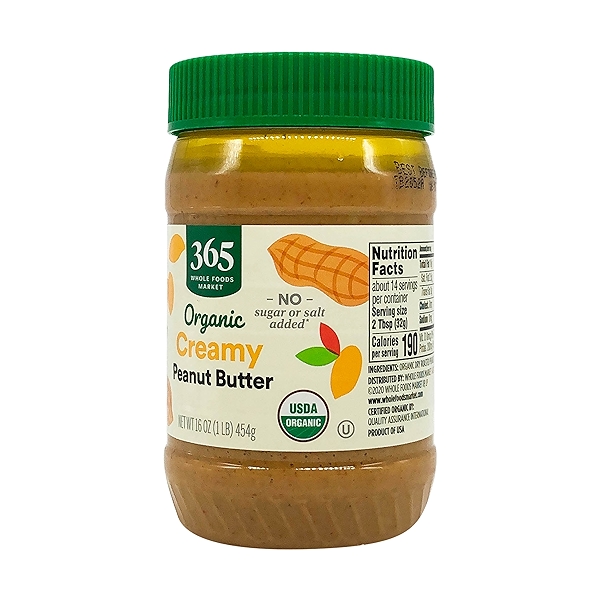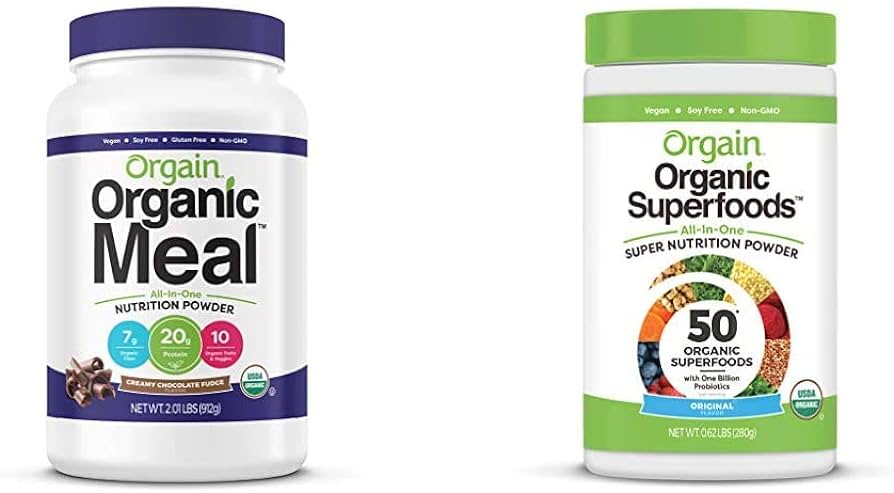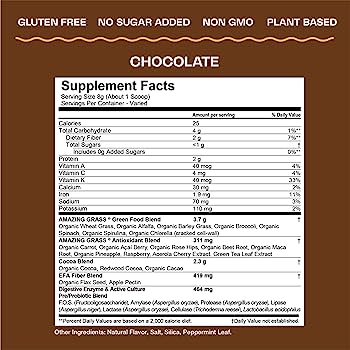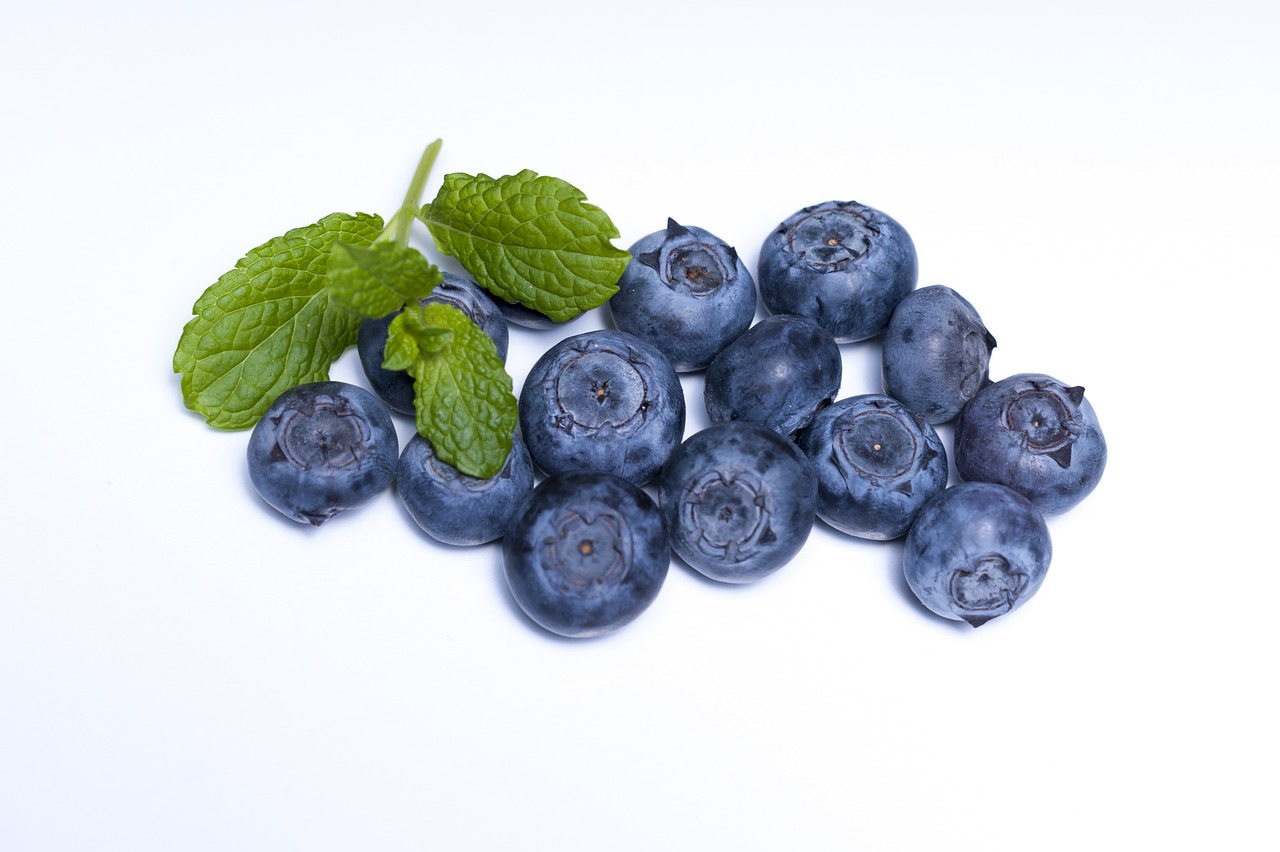Introduction
In recent years, avocados have become a symbol of modern healthy eating. This creamy, green fruit has transcended its role as a mere topping for toast and has earned its place as a nutritional powerhouse. Bursting with flavor and packed with essential nutrients, avocados have taken the culinary world by storm. In this article, we explore the many virtues of avocados and their profound nutritional benefits.
In recent years, avocados have become a symbol of modern healthy eating, and their rise to stardom in the culinary world is well-deserved. This creamy, green fruit has transcended its role as a mere topping for toast and has earned its place as a nutritional powerhouse, offering a multitude of benefits for your well-being.
Versatility Unleashed: Avocados have evolved from being a simple condiment to a versatile ingredient that can be incorporated into a wide range of dishes. From guacamole to smoothies, salads to sandwiches, and even desserts, avocados add a delightful creaminess and a rich, satisfying flavor that elevates every meal.
Heart-Healthy Fats: Avocados are celebrated for their healthy fat content, primarily monounsaturated fats. These fats are known for their heart-protective properties, as they can help lower bad cholesterol levels, reducing the risk of heart disease and stroke. They also support overall cardiovascular health.
Nutrient-Rich Goodness: Beyond their fats, avocados are a treasure trove of essential nutrients. They’re an excellent source of potassium, which is crucial for maintaining healthy blood pressure. Avocado is also rich in dietary fiber, aiding digestion and helping you feel full and satisfied.
Antioxidant Powerhouse: Avocado’s vibrant green flesh is indicative of its high antioxidant content. These antioxidants, such as lutein and zeaxanthin, are essential for eye health and may reduce the risk of age-related eye conditions. They also play a role in protecting your skin from the effects of UV radiation.
Nutrient Absorption: Avocados have a unique ability to enhance the absorption of fat-soluble nutrients, such as vitamins A, D, E, and K, from other foods. Adding avocado to salads, for example, can significantly boost your body’s ability to take in these vital vitamins.
Weight Management: Despite their reputation as a high-fat food, avocados can be beneficial for weight management. Their fiber and healthy fats contribute to a feeling of fullness, reducing the likelihood of overeating. Plus, the fats in avocados can help regulate appetite and curb cravings.
Supporting Brain Health: Avocado’s nutrient profile includes vitamin K and folate, both of which are associated with improved cognitive function. These nutrients may play a role in maintaining brain health as you age.
Skin and Hair Benefits: The healthy fats and antioxidants in avocados can also benefit your skin and hair. Including them in your diet may help keep your skin hydrated and your hair looking shiny and healthy.
In conclusion, avocados have not only become a symbol of healthy eating but also a beloved addition to a balanced diet. Their nutritional benefits, including heart health support, versatile culinary applications, and a wealth of essential nutrients, make them a must-have in your kitchen. So, whether you’re spreading it on toast or adding it to your favorite recipes, rest assured that avocados are more than just a trend; they are a delicious and nourishing choice for your overall well-being.
Explore this link for a more extensive examination of the topic: Avocado History | Avocados From Mexico
First and foremost, it’s important to recognize that avocados are fruits, although they are often mistaken for vegetables due to their savory taste and creamy texture. They originate from the Persea americana tree and are native to South Central Mexico. Today, they are grown in many parts of the world, making them accessible to a global audience.
Understanding the true nature of avocados as fruits, despite their savory profile and creamy consistency, sheds light on their fascinating history and widespread cultivation. Originating from the Persea americana tree in South Central Mexico, avocados have an ancient heritage that dates back thousands of years. They were highly regarded by the Aztecs, who believed in their aphrodisiac qualities, earning them the name “ahuacatl,” which also means testicle in the Aztec language, perhaps due to their shape.
Today, avocados have transcended their cultural and geographical origins, becoming a global phenomenon in the culinary world. Their adaptability to various climates has made them a staple in many countries, from the sunny groves of California to the lush orchards of New Zealand. Avocado enthusiasts around the world enjoy their versatility in both savory and sweet dishes, from guacamole and salads to smoothies and desserts.
Beyond their delicious taste and texture, avocados have gained fame for their numerous health benefits. They are rich in heart-healthy monounsaturated fats, dietary fiber, vitamins, and minerals, making them a nutritious addition to any diet. Their creamy consistency is prized by vegans and vegetarians as a dairy-free alternative in recipes like avocado-based ice cream or as a creamy spread on toast.
In essence, avocados exemplify the beauty of culinary diversity and global interconnectedness. They are a fruit that transcends borders, cultures, and cuisines, enriching the world’s palate with their unique flavor and nutritional value. So, the next time you enjoy an avocado, savor not only its taste but also its rich history and the global journey it undertook to grace your plate.
For additional details, consider exploring the related content available here Are Green Smoothies Good for You? Pros and Cons, Nutrition …

What sets avocados apart from other fruits is their exceptional nutritional profile. Here’s a breakdown of the key nutrients found in avocados:
nullYou can also read more about this here: Top 5 Ways to Use Avocados – Sharon Palmer, The Plant Powered …

Avocados are famous for their high content of monounsaturated fats, particularly oleic acid, which is also found in olive oil. These fats are heart-healthy and can help reduce bad cholesterol levels.
Avocados have earned a well-deserved reputation as a nutritional powerhouse, thanks to their abundant monounsaturated fats, primarily oleic acid—an unsung hero in the world of heart-healthy nutrition. Much like the revered olive oil, avocados carry a unique set of benefits that can actively contribute to cardiovascular health and the management of cholesterol levels.
Heart’s Best Friend: Monounsaturated fats, such as oleic acid, are often referred to as the heart’s best friend. They have been shown to have a positive impact on heart health by reducing the risk of heart disease. The inclusion of avocados in your diet can help you harness these heart-protective qualities.
Cholesterol Control: Oleic acid’s remarkable ability to lower levels of LDL (low-density lipoprotein) cholesterol, often referred to as “bad” cholesterol, is a pivotal aspect of avocado’s cardiovascular benefits. By incorporating avocados into your meals, you actively engage in cholesterol control, reducing the risk of plaque buildup in your arteries.
Promoting HDL Cholesterol: Not only do avocados reduce bad cholesterol, but they also boost levels of HDL (high-density lipoprotein) cholesterol—the “good” cholesterol. HDL helps remove excess cholesterol from the bloodstream, further fortifying your cardiovascular defenses.
Reducing Inflammation: Oleic acid possesses anti-inflammatory properties, which are crucial for maintaining the health of your blood vessels and heart. Reducing chronic inflammation within the body can lower the risk of atherosclerosis and other cardiovascular conditions.
Rich in Nutrients: Avocados are more than just a source of healthy fats; they’re a treasure trove of essential nutrients. They provide vitamins, minerals, and dietary fiber, which are all vital for overall cardiovascular wellness and can complement the benefits of monounsaturated fats.
Satiety and Weight Management: The healthy fats in avocados contribute to a feeling of fullness and satisfaction after meals. This can help curb overeating and promote weight management, as excess weight is a risk factor for heart disease.
Versatile Culinary Ingredient: Avocados’ creamy texture and mild, nutty flavor make them a versatile addition to various dishes. Whether spread on whole-grain toast, tossed into salads, or blended into smoothies, they offer a delicious way to fortify your meals with heart-healthy fats.
Sustainable Choice: Choosing avocados can also be a sustainable choice, as their cultivation often has a lower environmental impact compared to certain animal-based sources of fats.
Incorporating avocados into your diet can be a simple yet impactful way to support your cardiovascular health. By enjoying this creamy, heart-healthy fruit regularly, you not only savor its rich taste but also nourish your body with a range of nutrients that can help protect your heart and promote overall well-being.
If you’d like to dive deeper into this subject, there’s more to discover on this page: Avocados | The Nutrition Source | Harvard T.H. Chan School of …

Avocados are an excellent source of dietary fiber, which supports digestion, aids in weight management, and helps regulate blood sugar levels.
Avocados, often hailed as a nutritional powerhouse, are truly a remarkable addition to any diet. Their versatility in both savory and sweet dishes makes them a favorite among health-conscious individuals, and one of their standout qualities is their richness in dietary fiber—a key component that brings about a cascade of benefits for our health and well-being.
Dietary fiber, abundant in avocados, is like nature’s broom within our digestive system. It plays a vital role in supporting healthy digestion by promoting regular bowel movements and preventing constipation. This not only enhances our overall comfort but also ensures that toxins and waste are efficiently eliminated from our bodies.
But the benefits of dietary fiber extend well beyond digestive comfort. Avocado’s fiber content can also be a valuable ally in weight management. When we consume foods rich in fiber, they tend to be more filling and satisfying, which can help curb our appetite and reduce the overall calorie intake throughout the day. This satiating effect can be particularly helpful for those striving to shed excess pounds or maintain a healthy weight.
Furthermore, the presence of fiber in avocados can contribute to the regulation of blood sugar levels. Dietary fiber slows the absorption of sugars from the digestive tract into the bloodstream, preventing rapid spikes in blood sugar. This steady and controlled release of sugar not only supports energy levels but also helps reduce the risk of type 2 diabetes and improves insulin sensitivity.
In addition to these fundamental health benefits, avocados are a treasure trove of other essential nutrients, including heart-healthy monounsaturated fats, vitamins, minerals, and antioxidants. The combination of these nutrients with fiber makes avocados a standout food for overall health and well-being.
Incorporating avocados into your diet can be as simple as spreading avocado slices on whole-grain toast, adding them to salads, or blending them into creamy, nutrient-rich smoothies. Whether you enjoy them as a snack, a condiment, or a main ingredient, avocados are a delectable and nutritious way to boost your dietary fiber intake and reap the rewards of better digestion, weight management, and blood sugar control. So, the next time you savor the creamy goodness of an avocado, know that you’re not just indulging in a delicious treat but also nourishing your body with a wealth of health benefits.
Should you desire more in-depth information, it’s available for your perusal on this page: Avocados | The Nutrition Source | Harvard T.H. Chan School of …

Avocados are rich in various vitamins, including vitamin K, vitamin E, vitamin C, and several B vitamins. These vitamins play essential roles in immune function, skin health, and overall well-being.
Avocados, often celebrated for their creamy texture and delightful flavor, are indeed nutritional powerhouses brimming with an array of essential vitamins that contribute to our health in multifaceted ways. Let’s explore further how these vitamins found in avocados play vital roles in promoting well-being:
Vitamin K: Avocados contain vitamin K, a nutrient crucial for blood clotting and bone health. This vitamin ensures that your blood can effectively coagulate when needed, reducing the risk of excessive bleeding. Moreover, it supports bone density by assisting in calcium regulation, making avocados a valuable addition to diets aiming for strong bones.
Vitamin E: Avocados are a fantastic source of vitamin E, a potent antioxidant. Antioxidants play a vital role in protecting your cells from oxidative damage caused by free radicals. Vitamin E’s antioxidant properties help maintain skin health by supporting its defenses against environmental stressors, keeping it looking vibrant and youthful.
Vitamin C: While not as high in vitamin C as some other fruits, avocados still contribute to your daily intake. Vitamin C is renowned for its immune-boosting qualities. It stimulates the production of white blood cells, helping your body fight off infections and illnesses. Additionally, it supports the production of collagen, essential for skin elasticity and wound healing.
B Vitamins: Avocados contain various B vitamins, including B5 (pantothenic acid), B6 (pyridoxine), and folate (B9). These B vitamins are involved in numerous metabolic processes, including energy production, nerve function, and the formation of red blood cells. Folate, in particular, is crucial for pregnant women as it helps prevent certain birth defects and supports overall fetal development.
Incorporating avocados into your diet not only adds a delicious and creamy element to your meals but also provides a diverse range of vitamins that contribute to your overall well-being. Whether you’re looking to boost your immune system, enhance your skin’s radiance, or support essential bodily functions, avocados offer a nutritious and tasty way to help achieve these health goals.
Should you desire more in-depth information, it’s available for your perusal on this page: Avocados | The Nutrition Source | Harvard T.H. Chan School of …

Avocados contain essential minerals like potassium, which is crucial for maintaining healthy blood pressure, and folate, which is essential during pregnancy.
nullIf you’d like to dive deeper into this subject, there’s more to discover on this page: What Is a Superfood, Anyway? – Cleveland Clinic

Avocados are packed with antioxidants like lutein and zeaxanthin, which are beneficial for eye health and may reduce the risk of age-related macular degeneration.
Avocados are indeed a treasure trove of eye-boosting nutrients, particularly lutein and zeaxanthin, that offer multifaceted advantages for maintaining clear and healthy vision. Let’s delve deeper into how these antioxidants found in avocados play a crucial role in eye health and the potential they hold in reducing the risk of age-related macular degeneration (AMD):
Protective Shield for Your Eyes: Lutein and zeaxanthin are carotenoids that act as a natural protective shield for your eyes. When consumed, they accumulate in the macula, the central part of the retina, shielding it from harmful high-energy light waves, such as ultraviolet rays and blue light from digital screens.
Reduced Risk of AMD: Age-related macular degeneration is a leading cause of vision loss among older adults. Studies have shown that a diet rich in lutein and zeaxanthin, like one incorporating avocados, is associated with a reduced risk of developing AMD. These antioxidants help maintain the integrity of the macula and preserve central vision.
Enhanced Contrast and Visual Acuity: Regular consumption of avocados, with their high lutein and zeaxanthin content, can enhance contrast sensitivity and visual acuity. This means better ability to discern fine details, particularly in low-light conditions, and improved overall visual clarity.
Protection Against Cataracts: Lutein and zeaxanthin may also contribute to reducing the risk of cataracts, another common age-related eye condition. By acting as antioxidants, they help neutralize the free radicals that contribute to cataract formation.
Nutrient Synergy: Avocados’ richness in lutein and zeaxanthin is often complemented by other beneficial nutrients such as vitamin E and vitamin C, which further amplify their protective effects on eye health. This nutrient synergy makes avocados a valuable addition to your diet for maintaining optimal vision.
Convenient and Delicious Source: Incorporating avocados into your meals is not only convenient but also delicious. You can enjoy them in salads, sandwiches, smoothies, or simply sliced on toast, making it easy to reap the eye-boosting benefits of these antioxidants.
Long-Term Eye Wellness: While avocados are not a magical cure for eye conditions, they are a proactive choice for promoting long-term eye wellness. Including them in your diet is a step toward safeguarding your vision and reducing the risk of age-related eye issues.
In conclusion, avocados are more than just a creamy and delightful addition to your plate; they are a natural source of lutein and zeaxanthin, two powerful antioxidants that offer essential protection for your eyes. By embracing avocados as part of your regular diet, you not only savor their unique flavor but also invest in the longevity and vitality of your vision.
If you’d like to dive deeper into this subject, there’s more to discover on this page: 15 of the Most Powerful Superfoods

While not as protein-rich as some other foods, avocados do contain a small amount of protein, contributing to overall dietary protein intake.
While not as protein-rich as some other foods, avocados do contain a small amount of protein, and their contribution to overall dietary protein intake should not be underestimated. These creamy green fruits are often celebrated for their healthy fats and rich vitamin and mineral content, but the protein they offer plays a valuable supporting role in your daily nutrition.
Avocados typically contain around 2 grams of protein per serving, which, though modest compared to sources like meat or legumes, still adds up. Incorporating avocados into your meals can be especially beneficial for individuals who follow vegetarian or plant-based diets, as every source of protein counts.
The protein in avocados is not only about quantity but quality. It contains all nine essential amino acids, making it a complete protein source. While you may not rely solely on avocados to meet your protein needs, they can complement other protein-rich foods in your diet, creating a more balanced and diverse nutrient profile.
Furthermore, avocados provide a range of other essential nutrients that contribute to overall health. They are an excellent source of heart-healthy monounsaturated fats, dietary fiber, vitamins like folate, vitamin K, vitamin C, and various minerals, including potassium and magnesium. This nutrient-rich profile makes avocados a valuable addition to a well-rounded diet, supporting not only protein intake but also various aspects of your overall health.
Incorporating avocados into your diet can be as simple as adding slices to your sandwiches, blending them into smoothies for creaminess and nutrition, or mashing them for a delicious guacamole to accompany your meals. So, while avocados may not be a primary protein source, their contribution should be appreciated as part of a holistic approach to balanced nutrition.
To delve further into this matter, we encourage you to check out the additional resources provided here: 7 Benefits of Eating Avocados, According to a Dietitian

One of the standout features of avocados is their potential to promote heart health. The combination of monounsaturated fats, fiber, and potassium makes them an excellent addition to a heart-healthy diet. These components can help lower bad cholesterol levels, reduce blood pressure, and support overall cardiovascular well-being.
The remarkable benefits of avocados extend beyond their creamy, delicious taste; they stand out as heart health champions. Within their vibrant green flesh lies a potent blend of nutrients that can work wonders for your cardiovascular well-being.
1. Monounsaturated Marvels: Avocados are renowned for their high monounsaturated fat content. These healthy fats have a superhero-like ability to combat the arch-nemesis of heart health, low-density lipoprotein (LDL) cholesterol. By increasing the levels of high-density lipoprotein (HDL) cholesterol, the “good” cholesterol, and lowering LDL cholesterol, avocados contribute to a lower risk of heart disease.
2. Fiber Fortitude: Fiber is another ace up avocados’ sleeves. It plays a pivotal role in promoting heart health by helping to regulate cholesterol levels and improve overall digestive health. Avocado’s fiber content not only aids in lowering bad cholesterol but also supports a feeling of fullness, which can aid in weight management—a significant factor in heart disease prevention.
3. Potassium Powerhouse: Avocados boast a remarkable potassium content, even surpassing that of bananas. This essential mineral helps maintain healthy blood pressure levels. When your potassium intake is sufficient, it can counteract the effects of excessive sodium intake, which is a leading cause of hypertension.
4. Versatility and Enjoyment: Incorporating avocados into your diet is not just beneficial but also enjoyable. Whether you spread it on whole-grain toast, mash it into guacamole, or slice it atop a salad, avocados effortlessly elevate the taste and texture of your meals. This versatility makes it easier to maintain a heart-healthy diet without sacrificing flavor.
5. Holistic Heart Support: Avocados contribute to a holistic approach to heart health. They address multiple risk factors simultaneously, helping to keep your heart strong and resilient. By embracing these green gems, you’re not only reducing the risk of heart disease but also nurturing your overall well-being.
Incorporating avocados into your regular diet can be a simple yet profound step toward nurturing your heart. Their unique combination of monounsaturated fats, fiber, and potassium can help lower bad cholesterol levels, regulate blood pressure, and support your cardiovascular system. So, when you enjoy avocados, you’re not just savoring a delicious treat; you’re also showing your heart some well-deserved love.
To expand your knowledge on this subject, make sure to read on at this location: Best Fruits for Arthritis | Arthritis Foundation

Despite their calorie content, avocados are often considered a weight management ally. The high fiber and healthy fat content can help increase feelings of fullness and satisfaction, potentially reducing overall calorie intake.
nullLooking for more insights? You’ll find them right here in our extended coverage: Avocados | The Nutrition Source | Harvard T.H. Chan School of …

Beyond their nutritional benefits, avocados are incredibly versatile in the kitchen. They can be sliced onto salads, mashed into guacamole, blended into smoothies for creaminess, or spread on whole-grain toast for a satisfying snack. Their mild, nutty flavor complements a wide range of dishes, making them a favorite ingredient in both savory and sweet recipes.
Beyond their nutritional benefits, avocados are incredibly versatile in the kitchen, earning them a well-deserved place in the hearts of chefs and home cooks alike. Their versatility knows no bounds, and their creamy, buttery texture makes them a sought-after ingredient for enhancing a wide variety of dishes.
Salads: Avocado slices are a common and delightful addition to salads. Their rich, velvety texture provides a pleasing contrast to the crispness of fresh greens and vegetables. Whether tossed into a classic Caesar salad or mixed with mango and cilantro in a tropical salad, avocados elevate your salad game.
Guacamole: The avocado’s most iconic role is in guacamole, a beloved dip or condiment. Mashed with lime juice, onions, cilantro, and a touch of spice, it’s the perfect accompaniment for tortilla chips, tacos, or as a flavorful topping for grilled meats and veggies.
Smoothies: Avocados are a secret weapon in the world of smoothies. They add creaminess without the need for dairy, making them a go-to choice for vegans and those with lactose intolerance. Blending avocado into your morning smoothie not only enhances the texture but also adds a dose of healthy fats and nutrients.
Toast: Avocado toast has become a culinary trend for good reason. Mashed avocado spread on whole-grain toast creates a satisfying snack or breakfast option. You can customize it with various toppings like sliced tomatoes, poached eggs, or a sprinkle of chili flakes for an extra kick.
Sushi: Avocado is a common ingredient in sushi rolls. Its creamy texture complements the flavors and textures of ingredients like fresh fish, rice, and seaweed, adding a unique touch to your sushi experience.
Baking: Avocado can also be incorporated into baked goods, replacing some or all of the butter or oil in recipes. This substitution not only reduces saturated fat but also adds moisture and a subtle, nutty flavor. Avocado brownies and avocado chocolate mousse are popular examples of these healthier dessert options.
Salad Dressings: Avocado can be blended into salad dressings to create a creamy, nutritious base. Mix it with ingredients like garlic, vinegar, and olive oil for a homemade, guilt-free dressing that enhances the flavor of your salads.
The mild, nutty flavor of avocados makes them a versatile addition to both savory and sweet dishes. Their adaptability in various culinary creations not only enhances taste but also boosts the nutritional profile of your meals. So, whether you’re aiming to add creaminess, flavor, or health benefits to your food, avocados are a kitchen superstar that can elevate your cooking to new heights.
Looking for more insights? You’ll find them right here in our extended coverage: Superfood Spotlight: What Are the Health Benefits of Avocados?

Conclusion
Avocados have rightfully earned their status as a superfood, thanks to their exceptional nutritional content and the many ways they can enhance your culinary creations. Whether you’re looking to support heart health, manage your weight, or simply savor a delicious and nutritious addition to your meals, avocados are a creamy green treasure that deserves a prominent place on your plate. So go ahead, indulge in the creamy goodness of avocados and relish the numerous health benefits they bring to your table.
Avocados, often referred to as a superfood, have indeed carved out a special place in the world of nutrition and gastronomy. Their superfood status isn’t merely a result of hype; it’s a testament to their exceptional versatility and remarkable health benefits.
A Versatile Culinary Companion: Avocados are like culinary chameleons, effortlessly adapting to various dishes and cuisines. Their creamy texture and mild, buttery flavor can elevate the simplest of salads, turn a mundane sandwich into a gourmet delight, or transform a basic breakfast into a memorable meal. From creamy soups to vibrant sushi rolls, avocados are celebrated for their ability to enhance a wide spectrum of culinary creations.
Heart Health and Beyond: Beyond their culinary charm, avocados are a treasure trove of nutrients that can significantly impact your well-being. They excel in promoting heart health, thanks to their heart-healthy fats, potassium, and fiber. But their benefits don’t stop there.
Weight Management: Avocados’ unique combination of healthy fats and fiber can aid in weight management by keeping you feeling full and satisfied, potentially curbing unnecessary snacking and overeating.
Nutrient Density: Avocados are remarkably nutrient-dense, packing a substantial amount of vitamins, minerals, and antioxidants into each serving. Whether you’re looking to boost your immune system with vitamin C or support your bone health with vitamin K, avocados offer an array of nutrients.
Skin and Hair: The vitamins and healthy fats in avocados aren’t just good for your internal health; they can also promote radiant skin and lustrous hair. Some people even use mashed avocados as natural face masks and hair treatments for their nourishing properties.
A Sustainable Choice: Avocado cultivation has raised questions about its environmental impact, but many regions have embraced sustainable farming practices. By choosing avocados from responsible sources, you can enjoy their benefits while minimizing negative ecological consequences.
A Daily Delight: Avocados aren’t just a trendy food; they are a timeless delight that can find a place at your table every day. Whether you’re blending them into a morning smoothie, topping your lunchtime salad, or crafting a dinner masterpiece, avocados offer consistent, wholesome goodness.
In conclusion, avocados have earned their superfood status not only through their exceptional nutritional content but also through their ability to enrich our culinary experiences. Whether you’re drawn to them for their heart-healthy fats, their weight management potential, or simply their delightful taste and texture, avocados are a true gift from nature. So embrace them as a part of your daily diet, savor their creamy goodness, and relish the myriad ways they contribute to your health and happiness.
Additionally, you can find further information on this topic by visiting this page: Superfood For Diabetes: How Avocado Can Help Manage Blood …
More links
To expand your knowledge on this subject, make sure to read on at this location: Avocados | The Nutrition Source | Harvard T.H. Chan School of …
